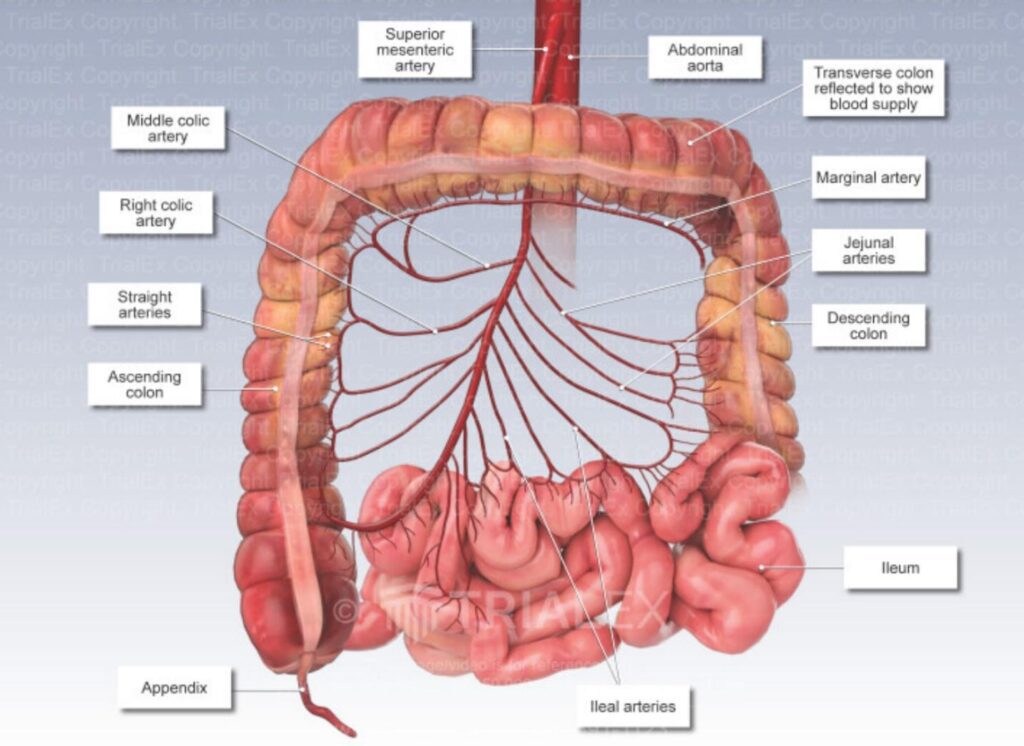
Mesenteric ischemia is a not very common cause of abdominal pain and occurs typically in smokers and patients who have other stigmata of peripheral arterial disease. This can be acute or chronic mesenteric ischemia and happens due to atherosclerotic disease of blood vessels of the intestines resulting in inadequate blood supply to the bowels. This happens particularly after you eat and therefore results in pain in the tummy after almost every meal. The bowels are supplied by three main arteries, and when two out of three are completely blocked or severely narrowed (high grade stenosis), you can get pain in the tummy.
Pain classically appears in the tummy 15 to 30 minutes after eating, occurs repeatedly and occurs with all food types, not just with fatty food as is typically seen with gallbladder disease. The patient becomes so fearful of the pain that occurs after every episode of eating that they get scared of eating. This not uncommonly results in unintentional weight loss of 15 to 60 pounds.
The three main blood vessels of the gut are the celiac artery, which supplies from the stomach to the foregut; the superior mesenteric artery, which supplies most of the midgut; and the mesenteric artery, which is the main blood supply of the hindgut.
Blood Supply of the bowel
